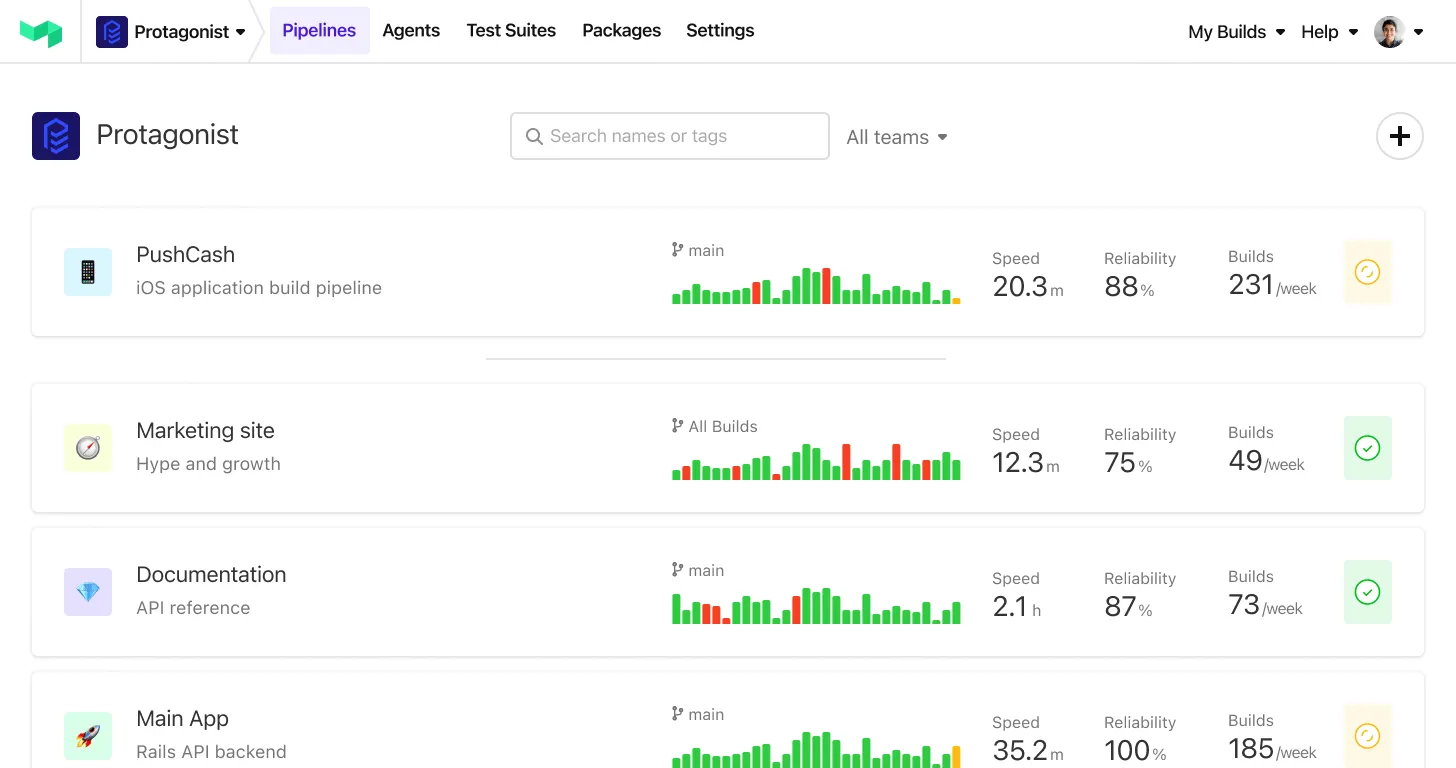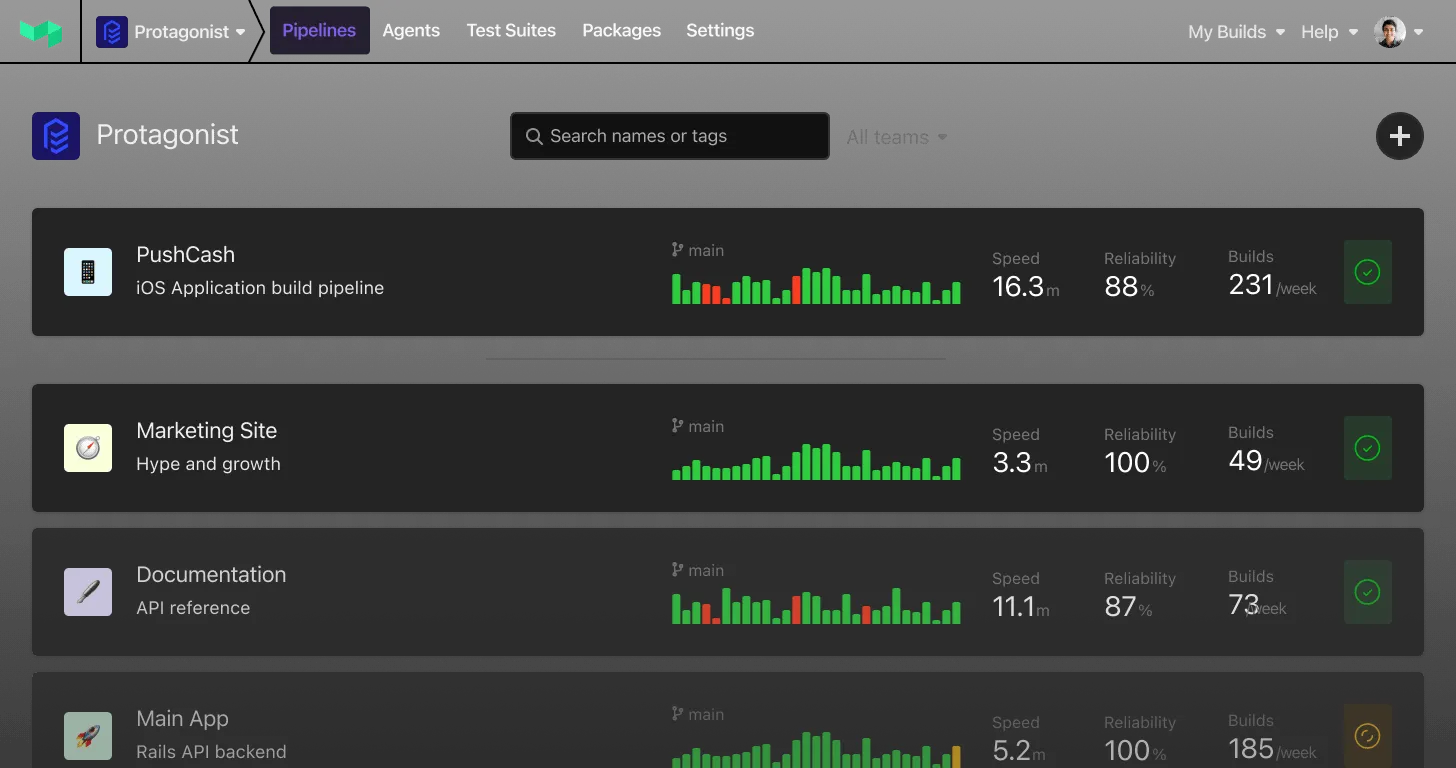Omni Comment Buildkite Plugin
Combine outputs from many jobs into a single comment on pull requests.
Usage
Create a file named omni-comment.yml to define the section IDs that can appear in the comment:
sections:
- test_results
- deploy_preview
- perf_statsAdd the plugin to your Buildkite pipeline:
steps:
- label: 'Test'
command: 'npm test'
plugins:
- mskelton/omni-comment#v1:
section: test_results
message: 'All tests passed! ✅'
token: '${GITHUB_TOKEN}'Comment from a file
To comment from a file on disk, you can use the file-path option instead of message:
steps:
- label: 'Test'
command: 'npm test > test-results.txt'
plugins:
- mskelton/omni-comment#v1:
section: test_results
file-path: test-results.txt
token: '${GITHUB_TOKEN}'Configuration Options
| Option | Description | Required | Default |
|---|---|---|---|
section | The section ID that matches with the value in omni-comment.yml | ✅ | |
token | GitHub auth token for commenting on pull requests | ✅ | |
message | Comment body content | ||
file-path | File path containing the comment body | ||
title | A title for the section (creates expandable/collapsible section) | ||
collapsed | Collapse the section by default (only used if title is set) | false | |
repo | The repository where to create the comment | $BUILDKITE_REPO | |
pr-number | The pull request number where to create the comment | $BUILDKITE_PULL_REQUEST | |
config | Path to the config file | omni-comment.yml |
How does it work?
I built this action to solve a problem we have at Ramp of lots of CI outputs that each need to post back to the PR via comments. The problem is, the more comments you have, the more noisy it gets.
The idea was, what if you had a single comment that contained everything? Test results, deploy preview URLs, warnings, etc. When you try to build that though, there are some challenges.
First, it should support workflows running in parallel, so the order in which the comments are posted is non deterministic. However, we want the order of sections in the comment to be consistent between runs. Additionally, we need to support updating the comment if you push a new commit, and the test results are now passing instead of failed.
The GitHub issue comments API only supports sending a complete comment body when making updates, so if we just get the current value and send it back with our updates, its possible that two separate jobs update the comment at the same time and one of the updates will be lost. To workaround this, we need a way for jobs to acquire a “lock” on the comment, so that they can safely get the current comment value, make edits, and push the updated value back to GitHub.
What better locking mechanism than reactions! Turns out, the
create reaction API
will return a 201 Created status when a reaction is newly created and a 200 OK when the reaction
already exists. Using this subtle API detail, this action will attempt to acquire a lock by creating
the reaction and waiting for a 201 Created status code. If it receives a 200 OK status code, it
will sleep and retry until it is able to acquire a lock (it will fail after 30 seconds if it fails
to acquire a lock). Once the lock is acquired, the existing comment will be downloaded, edited, and
pushed back to GitHub. After updating the comment, the lock is released by deleting the reaction.
Simple right? 😉

